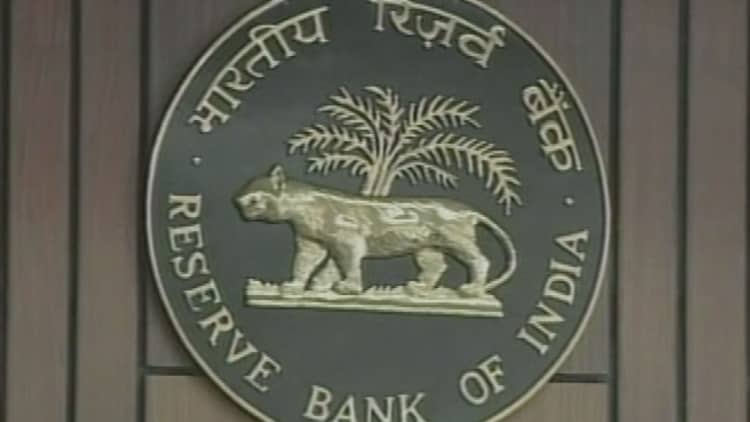
When Raghuram Rajan took the helm of the Reserve Bank of India three years ago, India had a plummeting currency, galloping inflation and a soaring current account deficit — a crisis many economists blamed on poor decisions by the central bank itself.
In grappling with these problems, Rajan, a confident former IMF chief economist with a secure professorship at the University of Chicago, set out to shake up an institution previously led by low-profile, career bureaucrats considered susceptible to political pressure from New Delhi.
He overhauled the RBI monetary policy framework, instituting a new inflation-targeting regime to replace previous ad hoc decision-making. He forced banks to tackle billions of dollars in distressed corporate loans, discomfiting powerful tycoons accustomed to fending off their creditors through politician friends in New Delhi.
But Rajan's hawkish approach to inflation and bad debts had plenty of public critics, including from within Prime Minister Narendra Modi's administration, who accused him of holding back economic growth.

Now, investors are waiting to see whether Rajan's reforms will survive his departure — or whether the RBI will gradually revert to its previous pliancy, easing monetary policy to accelerate growth — while potentially undermining India's hard-won macroeconomic stability.
In an interview with the Financial Times on the eve of his departure, Rajan said he believes the RBI and its workings have changed for good. "Broadly speaking, I think we have sort of unfrozen an older equilibrium and moved the system towards a new equilibrium," he said. "My sense is that momentum cannot be and will not be arrested."
As evidence of the progress made on his watch, Rajan pointed to the unprecedented recent issuance, by two Indian companies, of $750 million in -denominated bonds to international investors in London. "This would be unthinkable in 2013 when there was great concern about the rupee," he said.
But doubts about New Delhi's commitment to Rajan's focus on macroeconomic stability were fueled by the circumstances of his departure, following a high-profile campaign against him by a senior ruling party lawmaker.
Rajan had offered to stay after his initial three-year term to see through the banking clean-up and formation of a new monetary committee, intended to guard against political interference by ending the governor's unilateral control over rate decisions.
But New Delhi was not so keen. "We talked a little and figured out that the mutually desirable situation was that I would go back," Rajan said, without elaborating.
"There is a common saying in the US, 'The cemetery is full of indispensable people'," he added. "The important thing is to build the institutional structure and I feel we've done 95 per cent."
The elevation of Urjit Patel, the RBI deputy governor who worked with Rajan on monetary policy, reassured some that New Delhi will support continuing vigilance against inflation. But analysts are still awaiting the composition of the new monetary policy committee, and the name of the new RBI deputy governor, for a clearer indication of the government's inclinations.

Last month commerce minister Nirmala Sitharaman called for a 200-basis point interest rate cut, underscoring the continuing pressure for monetary easing from voices within the Modi administration. But Mr Rajan urged policymakers to resist "the siren song" of a supposedly easy path to short-term growth.
"I also wish that we could cut interest rates by, why 200, let's say 500 basis points," he said. "We are growing at a reasonable rate already. Why jeopardise this by following something totally unorthodox? Why not focus on the hard work of doing real reforms that will generate growth. Stay the course. Show some discipline. Eventually, discipline is rewarded."
Rajan accepted that India could achieve a growth rate 2 percentage points higher than the current level of about 7 per cent. But such acceleration would require "a healthier world economy" and domestic reforms to boost economic efficiency, he added.
"The only way to sustain growth is to keep inflation low and stable," he said, urging the government to "focus on the things that actually do enhance growth", such as expanding power supply and improving port infrastructure, investment in human capital and reform of the land and labour markets.
More from the FT:
- India's 'mini bang' to boost corporate bonds
- India's new bank chief
- RBI opts for orthodoxy with Urjit Patel
Some analysts believe the government's dissatisfaction with Rajan was due largely to public remarks on subjects outside his formal remit. Many in Modi's ruling Bharatiya Janata party were upset by a speech Rajan gave last year, amid a fierce national debate on whether India was growing more intolerant, on the importance of tolerance for the country's economy.
But he is unapologetic. "Would I ever take that back? Absolutely not," he said. "You have to weigh in on the side of good citizenship."
Back at the University of Chicago, Rajan plans to ponder the eroding legitimacy of capitalism among the developed world's angry middle classes and how to change market structures to diffuse that anger while preserving growth. "Maybe five, six years down the line, I will be game to re-engage with the real world," he said.
As for India's central bank, it will now fall to Patel to protect the institution's autonomy.
"I would say I have had as much independence as I want and am prepared to use," Mr Rajan said. "If you are willing to exercise and exert independence, there is nothing that constrains you."

